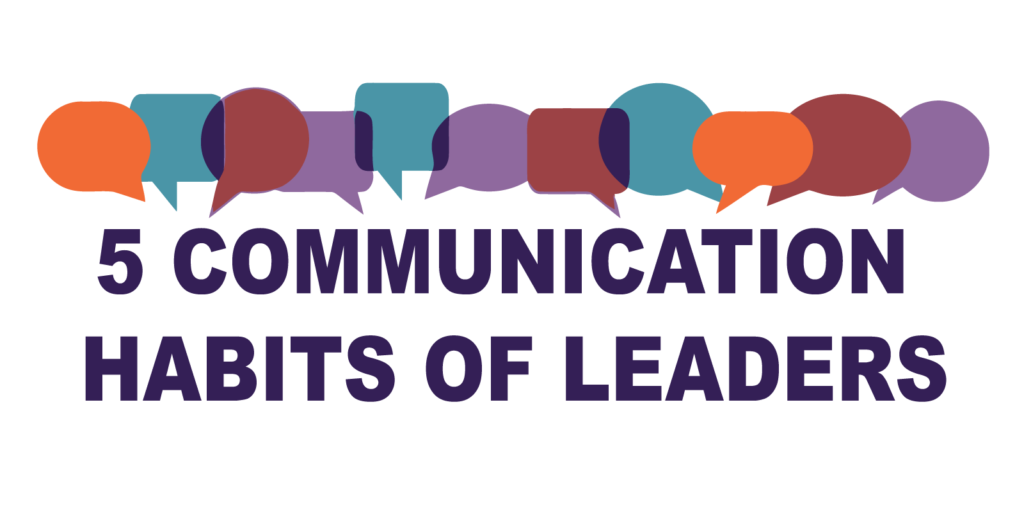
It’s that time of year – when folks are making New Year’s resolutions and organizations are looking forward to the successes they want to achieve in the next 12 months. There isn’t a self-improvement resolution, business strategy, or potential success story that won’t benefit from outstanding communication. And, great leaders know it. Here are five communication habits that successful leaders use…and you should too!
1. Focus 100%: When you’re listening to someone, be all in. Don’t surf your news feed on your phone, check your email, or even let your mind drift. Give the person you’re speaking with all your attention. We all know this to be true but few of us really do it. Here’s a true story on why it matters so much:
Years ago, I was working on a complex international policy issue and had been trying to get some time with a congressman who sat on the Tom Lantos Human Rights Commission. I finally got some time — walking him to another meeting. He said to me, “you’ve got 5 minutes, what do you need me to know.” It was only 5 minutes but he was laser focused. He gave me his undivided attention, and asked great questions. A week later one of his aides contacted me to work on a policy statement.
Success didn’t come for months — that’s how the wheels of government work. But it came because I got this congressman’s whole participation even if the conversation was only 5 minutes.
2. Build relationships: I’ve worked in African for decades, where it is customary to start a business meeting first talking about health or family for a moment. But in the U.S., we tend to dive right in to talking shop. Take a breath, slow down, and take a few moments to ask about the person you’re talking to — start to develop a relationship. Not only is it just a nice thing to do, it’s a smart thing to do. Trust and true partnerships grow from relationships. Relationships grow from engaging on a more personal level.
3. Listen! Many of us do what I call “reactive listening.” Yes we’re listening, but we’re listening to respond. We’re thinking about how to counter a comment or add a relevant antidote. Stop. Just listen. Don’t be so worried about what you’re going to say. Instead, stop simply hearing people and work on listening and understanding.
A great exercise to get better at listening is to tell yourself that you’re going to tell someone about the conversation later. It will cue your mind to focus on the person and what is being said.
4. Be open: The Dalai Lama once said, “When you talk, you are only repeating what you already know. But if you listen, you may learn something new.” This is great advice and successful leaders do listen to learn. But they also take it a step further, they listen with an open mind. Great leaders actively learn through their conversations, and are confident enough to have their opinions and world view challenged.
And, most importantly, leaders don’t shut down when challenged. They lean in. They are engaged in the conversation and ask questions, and are open to new information that may change their mind.
5. Provide honest feedback: This one is hard, and it’s why so many of us will skate past a difficult conversation, or worse, tell a white lie rather than the truth. We are in an environment lately that suffers from “untruths” as a norm and it needs to stop. We can be part of the solution if we commit to having truthful, authentic conversations.
Practice giving tough feedback with small issues and work up to bigger ones. Be clear and kind, but most importantly, be honest. Address things immediately – if allowed to linger, the problems will only get worse. Don’t make it personal. And sandwich your criticism with positive (but true) statements.



